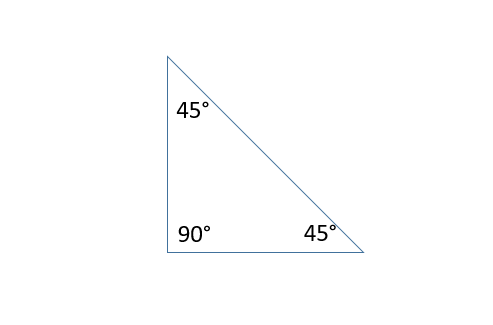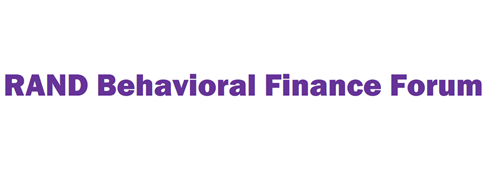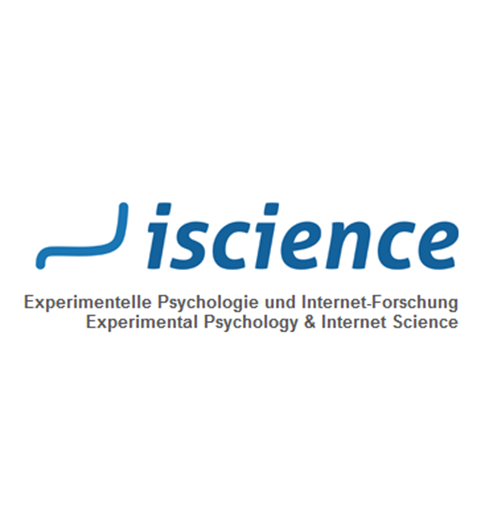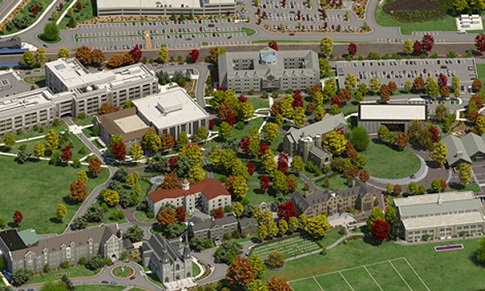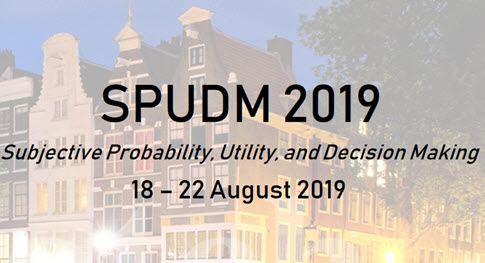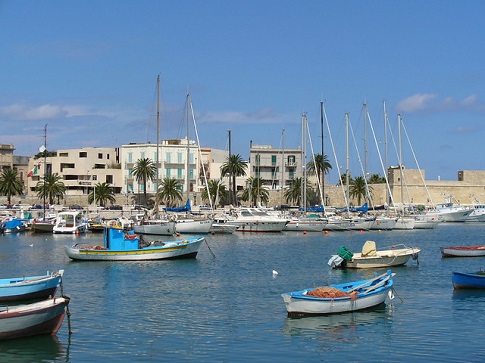EVERYTHING YOU EVER WANTED TO KNOW ABOUT THE AMA INTERVIEWS (2019 edition)
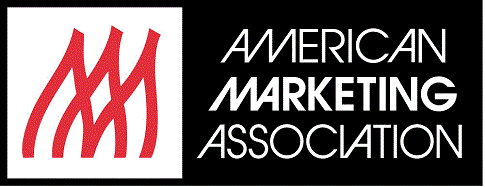
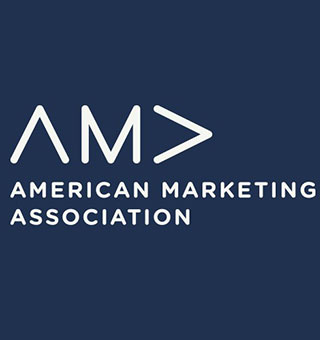
Each year DSN reprints this sort of “what to expect while you’re applying to the AMA” guide, first published here in 2005 and currently authored by Dan Goldstein with Celia Gaertig, Dave Hardisty, Anna Paley, and Abby Sussman.
SHARE YOUR OWN AMA TIPS
We are more than happy to publish AMA tips, updated information, or just AMA horror stories as part of this post. Email dan at dangoldstein dot com and specify if you want to be anonymous or nonymous.
WHY ARE WE WRITING THIS?
We have seen the Marketing job market turn happy grad students into quivering masses of fear. We want to share experiences and provide a bit of advice to make the whole process less mysterious.
WHY SHOULD ANYONE LISTEN TO US?
We know a lot about the Marketing job market. Dan went on the AMA job market in the mid 2000s. Dave and Abby went on the market in 2012. Celia and Anna went on the market in 2018. As faculty, we have collectively conducted scores of AMA interviews and made dozens of hiring decisions. As applicants, we’ve been on the candidate end of many AMA interviews, and experienced numerous campus visits, face-to-face interviews, offers, and rejections.
HOW TO GET INTO THE AMA JOB MARKET
The AMA job market conference takes place each year in early August. A couple months before the conference, find out where it will be by searing for the American Marketing Association Summer Academic Conference. Insiders just call it “AMA”. Reserve yourself a room in the conference hotel as soon as you can, preferably on the floor where the express elevator meets the local elevator for the upper floors. You’ll be hanging out on this floor waiting to change elevators anyway, so you might as well start there. (Note that you are not required to register for the actual conference, and most job candidates do not attend the conference.)
CHOOSE SCHOOLS TO APPLY TO
Some sites or mailing lists that post Marketing professor jobs are:
It’s tempting to apply to schools even if you have no interest in attending, but it’s probably not the wisest move (rejecting the schools later down the line is awkward and unpleasant). On the other hand, you may discover that you really like a school only later in the interview process (e.g., after you have met faculty at the school) so apply to all schools that are preferable to your backup plan (e.g., unemployment, extending a postdoc, taking an industry job).
One recent market participant wrote us saying: “Sometimes during an AMA interview the people you are interviewing with might tell you up front that they are not planning to hire someone in CB (consumer behavior) and that they are just interviewing you because they wanted to hear about your work (or, more generally, to get to know the star candidates on the market). This happened to me with at least one school, and it almost makes one NOT want to try seriously (i.e., to use that interview as a “break” from the more consequential interviews). However, I strongly advise candidates to take all their interviews seriously, even with schools that claim not to be hiring CB candidates. First of all, the interview is an opportunity for schools to learn about candidates’ research and therefore an additional opportunity to invest in one’s reputation. This is a small field and you will be interacting with these people later on. But, more importantly, schools sometimes end up changing their minds and giving you a fly-out anyway, despite what they initially said about not hiring CB candidates (this happened to me).”
WHEN TO APPLY
Candidates typically apply by July 4th, but there is a lot of variability. A few schools have earlier deadlines (mid/end of June) and will have scheduled all their interviews by the 4th, whereas other schools will be behind schedule and won’t even post a job opening until after the 4th. Ethan Pew adds “July 4 is still largely the target for sending out packets, however schools seem to be moving to more of a just-in-time process”. It’s not unusual for a third of all jobs to be posted so late as to make July 4 an impossible or unreasonable deadline. So if you hit the July 4 deadline for most of your submissions, don’t stop watching for new postings.
APPLICATION BUDDIES AND CROWD DATA ON JOBS
It’s valuable to have an “application buddy” who is also on the job market. You can share notes about who is hiring, how to apply at each place, etc. It also just makes the whole process more fun, to have a friend along for the ride. It’s also ok not to talk to people who make you feel worse about yourself. You should feel better after talking to buddies, not worse!
Someone will inevitably start a Facebook group, message board on econjobmarketrumors, or random spreadsheet with updates on schools. Engage with these at your own risk. The usefulness of it may not be worth it for the sheer emotional turmoil of the experience. Note that people sometimes post misleading or false information (either intentionally or unintentionally).
HOW TO APPLY
The job postings will specify how to submit your application. Some schools use Interfolio (a centralized system that makes it easy to submit your materials to multiple schools), others have their own online submission systems, and yet others will require you to submit your materials to a general application email address or to one of their faculty.
Different schools require different combinations of materials for the application, involving some combination of: (1) cover letter, (2) CV, (3) research statement, (4) letters of recommendation (roughly three), (5) your “job talk” paper, (6) one or two additional publications, and (7) teaching statement (only some schools; they may also ask for teaching evaluations). A few schools also require a diversity statement. Only upload polished work. Staying organized with this is very helpful. The cover letter is likely to be the only document that changes from school to school, and adding a personal touch to each school is a great way to convey genuine interest.
In addition to formally applying to the job postings, it is also useful to have your advisor (or if that’s not feasible, his/her assistant) send an email with your materials directly to a friend of theirs at each of your top-choice schools. Ideally, this would include all your letters of recommendation, so you would need to ask your letter writers to email their recommendations to your advisor. This will not take the place of applying through a school’s official online system, but will bring attention to your application before it arrives. This is also useful for schools that are slow to set up their official application, or who are uncertain about whether they’ll be hiring.
Note that the CV for AMA takes a special format, including an extended abstract of your “job talk” paper, so you should find an example to model your CV after. It’s helpful if your letters of recommendation come from faculty in a marketing department. You need to demonstrate your commitment to the field of marketing, so it’s also ideal to have publications in marketing journals, or at least something under review at a marketing journal.
With the advent of electronic submissions, the “marginal cost” of additional submissions is extremely low, and schools are facing a flood of applications. It’s not unusual for people to send 60 or more applications. Each school can only interview a limited number of candidates at AMA (perhaps 20 or 30 at most), so they need to be selective: they are not necessarily looking for the best candidates or even the best matches for a particular position, but rather the best candidates that would accept an offer from their school (over and above offers from other schools). For this reason, “lower tier” schools will often not give interviews to candidates they expect to get an “upper tier” job, because they believe that there is little chance the candidate would actually accept an offer from them. Therefore, you need to find a way to communicate why you are interested in that school in particular. The best way is through a contact you (or your advisor) have at that school. You should let them know that their school is a high priority for you, and why. The cover letter is another good place to differentiate yourself by showing an informed and personal interest. Likewise, once you get an AMA interview or a fly-out, it’s good to have thought about reasons why each school interests you. Keep in mind that information about your preferences that you tell to one school will very likely get back to other schools as well. For that reason, it’s best to come up with reasons that do not detract from your ability to credibly like other schools.
If you are submitting by email, it’s a good idea to follow up and confirm that they have all your application materials. Sometimes email applications get lost (this happened to a friend of ours at his top-choice school), and once the AMA interviews are scheduled, it may be too late. Likewise, when you are submitting via the online systems, you should regularly log in to check whether all of your reference letters have been received in the system. If one is missing, your application may be marked “incomplete,” and may not even be seen by the review committee.
THEN WHAT?
Wait to get calls or emails from schools wishing to set up AMA interviews with you. These calls may come in as late as one week before the conference. Often they come when you are sitting outside having a drink with friends, so have your schedule with you at all times. Some schools will not invite you for totally unknown reasons. You may get interviews from the top 5 schools and rejected from the 30th-ranked one. Don’t sweat it. This is the land of total and absolute unpredictability. On that note, know that just because you get an interview doesn’t mean they have a job. Sometimes schools don’t know until the last minute if they’ll have funding for a post. Still, you’ll want to meet with them anyway. Other times, schools are quite certain they have two positions, but then later university politics shift and they turn out to have none.
These days, schools are often setting up first round interviews over video chat instead of attending AMA. There may be one person or a group on the other end of the call. You may be asked to send your AMA slides, or have a more “casual” chat. Video interviews vary widely in timing — some may be well before AMA, while others may be up to months afterwards.
When the schools call to set up an AMA interview, these calls will be brief and to the point. You will have some flexibility in scheduling. Most schools will be scheduling interviews for Friday and Saturday of the AMA weekend. However, schools are also increasingly scheduling interviews for Sunday morning/early afternoon. Should you put your top schools at the beginning of the weekend, the end, or somewhere in the middle? Common advice is to put your less preferred schools on the beginning of the first day, because this gives you a chance to practice before the “important” ones. Then you can put your top choice schools early (say 10am, not 8am) on the second day of the conference, so you’ve had some time to practice, but you and the interviewers can still be fresh and energized. While it’s nice to schedule strategically, it’s very difficult since you have no idea which schools you’ll ultimately be hearing from, and calls come in over time. Don’t worry if it’s not possible to schedule everything perfectly- there’s no real magic to this. For example, the beginning of the weekend is also when interviewers will be freshest, and a primacy effect could help you: in fact, we know a candidate that put his top school first, and got a job offer from them.
After AMA, you’ll hopefully get “fly-outs,” that is, offers to come and visit the campus and give a talk. This means you’ve made the top five or so. Offers for fly-outs generally come within a week or two of AMA, and fly-outs typically start in early to mid September. However, if your first round interview was a Skype interview, this timing is less relevant (one of us left for a flyout 2 days after returning from AMA). This also means that there may not be much time between your AMA talk and your actual job market talk, so you should plan accordingly. Actual job offers start in late October, and the market has generally cleared by Thanksgiving. There’s a secondary job market that happens after all the schools realize they’ve made offers to the same person. Some schools over-correct for this and don’t make offers to amazing people who would have come. We need some kind of market mechanism to work out this part of the system. In any case, if you don’t get a job offer on the first round, don’t despair! More jobs and post-doc opportunities are posted throughout the year, well into the Spring, and we know a ton of candidates who landed top-tier jobs in the secondary market, or in their second year on the market.
THE “IT’S ALL ABOUT FRIENDSHIP” RULE
Keep in mind that you will leave this process with 1 or 0 jobs. Therefore, when talking to a person, the most likely thing is that he or she will not be your colleague in the future. You should then think of each opportunity as a chance to make a friend. You’ll need friends to collaborate, to get tenure, get grants, and to go on the market again if you’re not happy with what you get. It’s a good idea to send thank-you emails after AMA, to maintain contact, show your interest in the school, and express your appreciation. After all, the AMA interviewers have sacrificed their weekend to talk to you.
HOW DO YOU FIND OUT IN WHICH ROOM TO INTERVIEW?
The schools will send you e-mails or texts either a few days in advance, or the night before telling you which room to go to. If you haven’t heard anything from a school you are interviewing with the next morning, don’t hesitate to reach out to them to ask for the room number. Many profs ask the hotel to make their room number public, but for some reason many hotel operators will still not give you the room number. It can be helpful to walk through the hotel and figure out where your interview rooms will be before your actual interviews.
HOW TO TREAT YOURSELF WHILE THERE
Be as kind to yourself as possible, whatever this means for you. One of us got the advice of not going out at night and getting room service for breakfast and dinner. This worked (though commiserating with others can also be a welcome distraction). Also, the ridiculously high price of a room-service breakfast made us feel like we were sparing no expense, which was strangely motivating. However, as this guide has gotten more popular, many people are ordering room service breakfast, and there were reports in recent years AMA that the hotel was overwhelmed with orders and breakfasts were delivered quite late as a result!
HOW DO THE ACTUAL AMA INTERVIEWS GO?
At the prearranged time you will knock on their hotel room door. You will be let into a suite (40% chance) or a normal hotel room (50% chance, but see below). In the latter case, there will be professors with long and illustrious titles—people you once imagined as dignified—sitting on beds in their socks. The other people in the room may not look at you when you walk in because they will be looking for a precious few seconds at your CV. For at least some people in the room, this may be the first time they have concentrated on your CV. Yikes is right. Put the important stuff early in your CV so nobody can miss it. You can expect anywhere between one and nine faculty members to show up usually it will be between three to five. Some of them may take cell phone calls in the middle of your interview. Don’t take it personally.
They will ask “How is your day going?” or “How is AMA going?” or some variant of this. Make sure you have an answer and don’t get tripped up by that question (also, “Busy weekend for you?”). Something along the lines of, “It’s going well – I’ve really enjoyed [am looking forward to] talking about my research” is fine.
THE SEAT OF HONOR
There will be one armchair in the room. Someone will motion towards the armchair, smile, and say, “You get the seat of honor!” This will happen at every school, at every interview, for three days. We promise.
THE TIME COURSE
Allow extra time to get to your interview: all the candidates are traveling from one room to another at the same time, and the elevators can get pretty backed up. Interviews typically last 45 minutes, with around 30 minutes for your AMA talk presentation. When you arrive, there will be a couple of minutes of pleasant chit-chat. They will propose that you talk first and they talk next. Often, there will be a little table next to the chair on which you will put your flip book of slides. However, it’s also possible that you’ll sit on a chair without a table, so practice holding your flipbook without a table too. You will present for 30 minutes, taking their questions as they come. Your most important job is to answer these questions well. Don’t make your talk too long. Usually 20 minutes of scripted material will take you through the full time since you’ll be interrupted the whole way through. But you should be prepared to talk for up to 35-40 minutes for quiet groups, or sessions where only one faculty member shows up. In general, interviewers will be very nice, perhaps because everyone wants you to like their school, regardless of whether or not they will invite you for a fly-out. When done, they will ask you if you have anything to ask them. You of course do not. You hate this question. You make something up. Don’t worry, they too have a spiel, and all you need to do is find a way to get them started on it. By the time they are done, it’s time for you to leave. The whole experience will feel like it went rather well.
PREDICTING IF YOU WILL GET A FLY-OUT
It’s impossible to tell from how the interview seems to have gone whether they will give you a fly-out or not. Again, this is the land of staggering and high-impact uncertainty. They might not invite you because you were too bad (and they don’t want you), or because you were too good (and they think they don’t stand a chance of getting you and they don’t want to waste a precious fly-out on you). The latter fact means that “playing hard to get” is a bad idea.
DO INTERVIEWS DEVIATE FROM THAT MODEL?
Sometimes instead of a hotel room, they will have a private meeting room (7.5% chance). Sometimes they will have a private meeting room with fruit, coffee, and bottled water (2.5% chance). Sometimes, they will fall asleep while you are speaking (5% chance). Sometimes they will be rude to you (2.5% chance). Sometimes a key person will miss an early interview due to a hangover (2.5% chance). Sometimes, if it’s the end of the day, they will offer you alcohol (18% chance, conditional on it being the end of the day).
HOW YOU THINK THE PROCESS WORKS
The committee has read your CV and cover letter and looked at your pubs. They know your topic and can instantly appreciate that what you are doing is important. They know the value of each journal you have published in and each prize you’ve won. They know your advisor and the strengths she or he instills into each student. They ignore what they’re supposed to ignore and assume everything they’re supposed to assume. They’ll attach a very small weight to the interview and fly you out based on your record, which is the right thing to do according to a mountain of research on interviews.
HOW THE PROCESS REALLY WORKS
The interviewers will have looked at your CV for about one minute a couple months ago, and for a few seconds as you walked in the room. They will have not read your entire cover letter, and they will have forgotten most of what they did read. They could care less about your advisor and will get quite annoyed that you didn’t cite their advisor. They’ll pay attention to everything they’re supposed to ignore and assume nothing except what you repeat five times. Flouting 50 years of research in judgment and decision-making, they’ll attach a small weight to your CV and fly you out based on the interview and their gut feeling.
IF ENGLISH IS NOT YOUR MOTHER TONGUE
Your ability to speak English well won’t get you a good job, but your inability to do so will eliminate you from consideration at every top school. Understand that business schools put a premium on teaching. If the interviewers don’t think you can communicate well in the classroom, they’re probably not going to take a chance on you. If your spoken English is shaky, my advice is to work on it as hard as you are working on anything else. Hire a dialect coach (expensive) or an english-speaking actor or improviser (cheaper) to work with you on your English pronunciation. In the Internet age, it’s quite easy to download samples of English conversational speech, for instance from podcasts, for free. It’s also very easy to get a cheap headset and a free audio recorder (like Audacity) with which to practice.
TWO WAYS TO GIVE YOUR SPIEL
1) The plow. You start at the first slide and go through them until the last slide. Stop when interrupted and get back on track.
2) The volley. Keep the slides closed and just talk with the people about your topic. Get them to converse with you, to ask you questions, to ask for clarifications. When you need to show them something, open up the presentation and show them just that slide.
One of us did the plow the first year and the volley the second year and got four times more fly-outs the second year. Econometricians are working hard to determine if there was causality. We would not attempt the volley unless you are generally considered to be good with words.
A middle ground is to have a shorter presentation prepared, with many backup slides that you can turn to in response to audience interest or specific questions. This helps the audience understand that you’ve thought about the project deeply, that you are responsive to their specific interests and feedback, and that there’s more to support your argument than the prearranged script, but it’s easier for some to execute than a straight volley.
A few schools may try to force you off script. For example, one of us went into an interview and instead of letting us give our spiel, they asked us to pick just two slides from our slide deck and use those two slides to have a conversation with them about our project.
What do you use to show your slides? Many candidates print out slides and put them into a presentation flip-book easel binder, such as one of these: http://tinyurl.com/c46ob64 . Insert two copies of each slide into the binder so you can see a copy from the back, and the audience can see another from the front. Keep in mind that AMA slides are not the same as a typical PowerPoint presentation. People should be able to read your slides from the back of the room. We recommend no smaller than size 40 font, and larger is better. Hand-outs are also a good idea. But think about whether you would like to use them as a supplement to your slides or just leave them as a reminder for them once you leave the room. In any case, bring lots of hand-outs, because even if you use them as a supplement to your slides, it’s common to let them keep one copy.
HOW TO ACT
Make no mistake, you are like an actor auditioning for a part, and you are being constantly judged and evaluated over the course of several months. There will be no energy in the room when you arrive. You have to be like Santa Claus bringing in a large sack of energy. The interviewers will be tired. They’ve been listening to people in a stuffy hotel room from dawn till dusk for days. If you do an average job, you lose: You have to be two standard deviations above the mean to get a fly-out. So audition for the part, and make yourself stand out. (If you want to learn how actors audition, read Audition by Michael Shurtleff.)
SOCIAL SKILLS MATTER
From the candidate’s point of view, everything is about the CV and the correctness of the mathematical proofs in the job market paper. However, extra-academic qualities matter. Here are two examples. 1) The Social Skills factor. Departments get visitors all the time: guest speakers, visiting professors, job candidates, etc. Some departments are a bunch of folks who stare at their shoes when introduced to a new person. These departments have a real problem: they have nobody on board who can make visitors feel at ease, and sooner or later word starts to spread about how socially awkward the people at University X are. To fix such problems, departments sometimes hire socially-skilled types who know how to make people comfortable in conversation, and who know how to ask good questions during talks. Also, interviewers assume that people who can talk a good game will be star teachers. 2) The Soft Sell factor. Many people succeed in academia not because they are often right, but also because they are masters of making other people feel like they aren’t wrong. Defensiveness or determination to embarrass when responding to critique is an effective way to blow an interview.
HAVE A QUIRK
One of the biggest risks facing you is that you will be forgotten. Make sure the interviewers know something unusual about you. Dan’s quirk is that he worked internationally as an actor and theater director for over a decade and even had a bit part in a Conan O’Brien sketch on TV. It has nothing to do with research, but people always bring it up. Some bits of trivia are just more memorable than others.
DON’T GIVE UP
Never think it’s hopeless. Just because you’re not two SDs above the mean at the school of your dreams, it does not mean you’re not the dream candidate of another equally good school.
Many candidates don’t realize the following: The candidates are competing for schools but the schools are also competing for candidates. If you strike out, you can just try again next year. One of us knows a person in Psychology who got 70 rejections in one year. And another person in Marketing who was told by the 20th ranked school that he didn’t place in the top 60 candidates. The subsequent year, both people got hired by top 5 departments. One of them is ridiculously famous and considered among the smartest people in Marketing!
RUMORS
Gossip can mess with your chances. Gossip that you are doing well can hurt you because schools will be afraid to invite you if they think you won’t come. Gossip that you are doing poorly can hurt you because schools that like you will be afraid to invite you if they think no one else does. Sometimes people will ask a prof at your school if you would come to their school, and the prof will then ask you. To heck with that. Just say that if they want to talk to you, they should talk with you directly.
SOME FINAL REMARKS
The job market may end up being one of the most stressful experiences in your life. Remember that this is because THE JOB MARKET IS STRESSFUL and not because of anything about you. The people who have the most interviews/who end up getting their ideal job or a job they end up loving all spend a lot of time doubting themselves and feeling incredibly stressed throughout the process. The key is to learn how to manage your own emotional state in the process. Find ways to relax. Find things to do during the inevitable torture of waiting to hear back. Devoting time to interpersonal relationships, exercise, and other hobbies is particularly advisable. It will be ok!
If possible, try and enjoy the process and appreciate it for what it is. Compared to fields that have no coordinated job market (e.g Psychology), the Marketing market is much more efficient. This will be one of the first (and possibly one of the only) times that you have the attention of so many scholars who are genuinely focusing on you and your work. Ideally, you’d get some good ideas for building out your research program. Regardless, it’s a great opportunity to get to know others in the field, and for them to get to know you.





